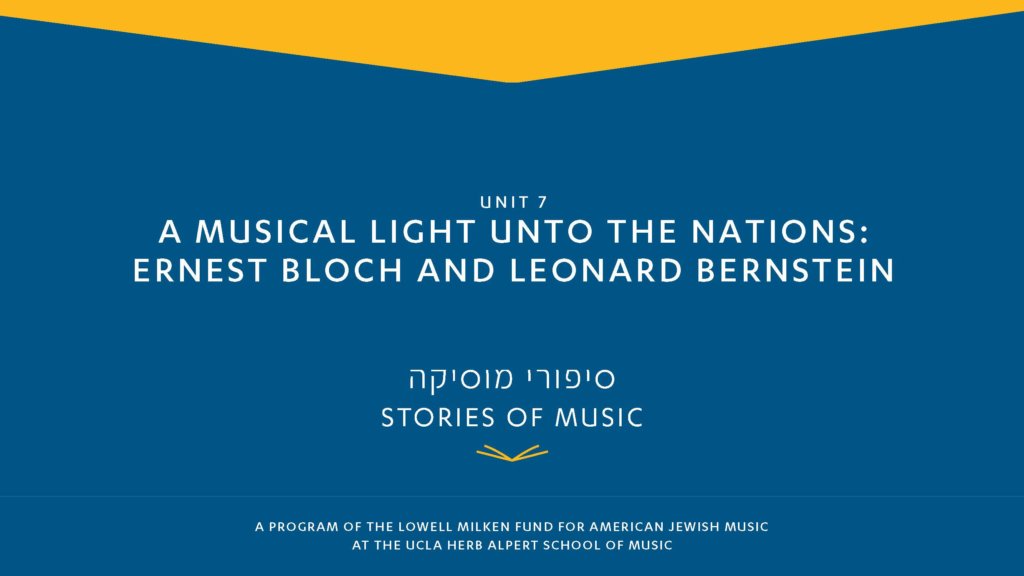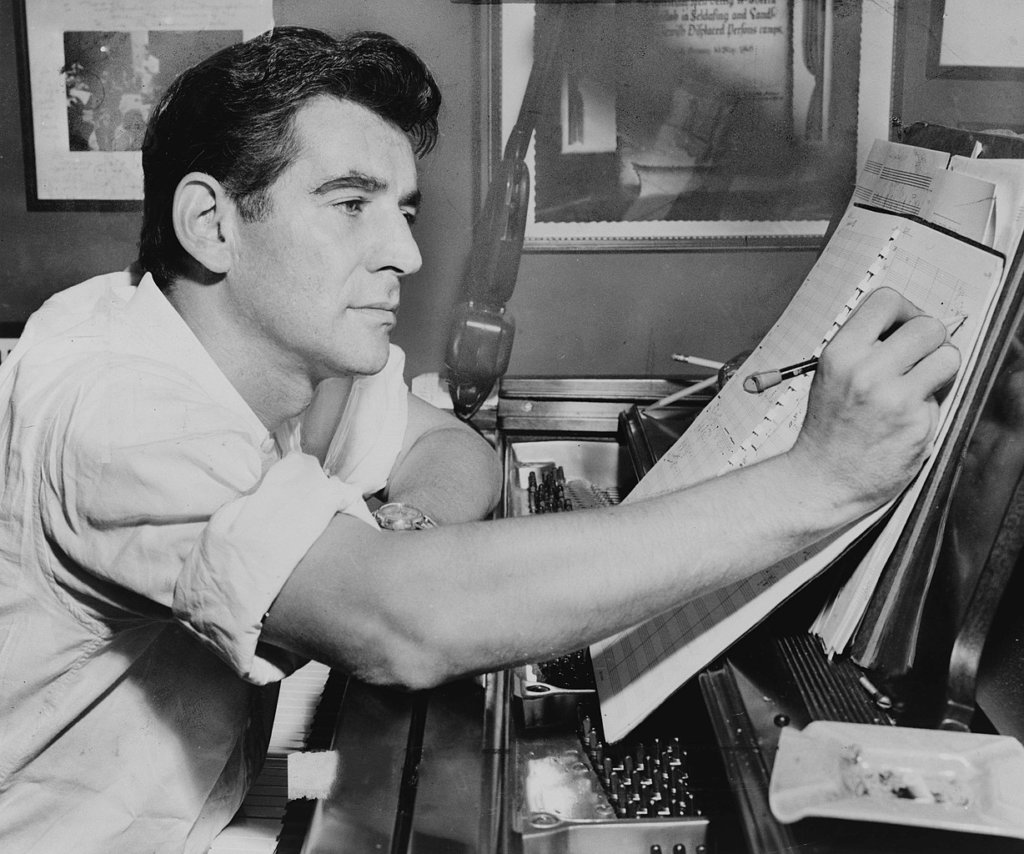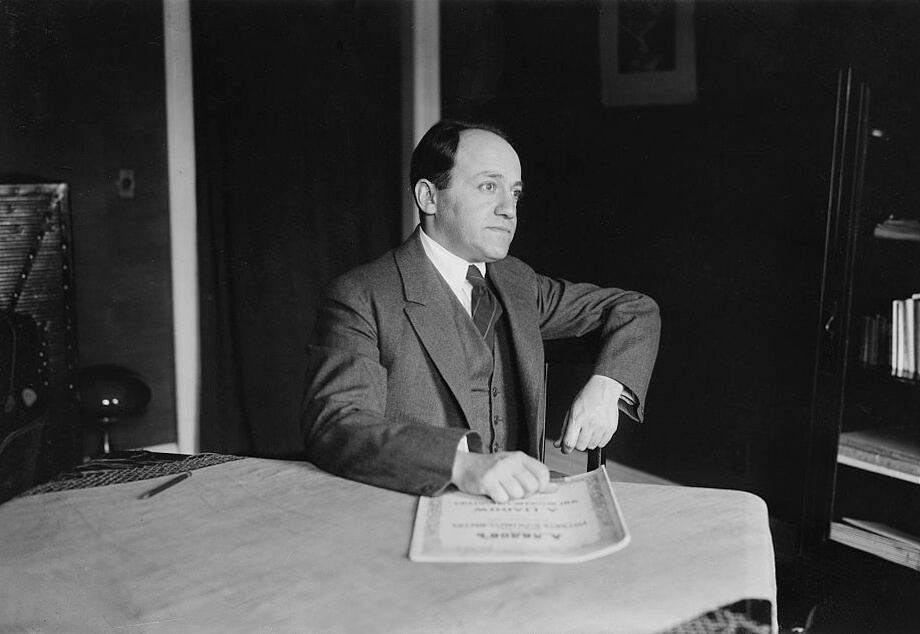Since the emergence of Jewish art music in the first decades of the twentieth century, composers, critics, musicians, and listeners of many stripes have struggled with—and argued about—how to define Jewish identity and what it means. For composers, the question of Jewish identity can be a vexing issue that intersects with larger questions about Jews and society more generally.
What does it mean to be a Jew in the world? How do one’s experiences as part of a religious and ethnic group influence one’s identity? How does that identity influence one’s approach to making music?
This lesson explores the music of two prominent Jewish composers who had very different American and Jewish experiences: Ernest Bloch and Leonard Bernstein.





